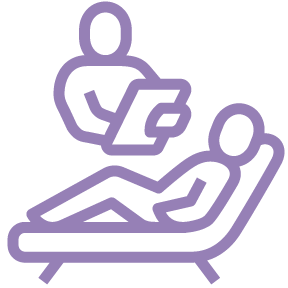Anxiety & Depressive Disorders
Our Methods
Diverse techniques to help guide you through life
Integrative Psychotherapy uses various psychotherapeutic techniques and healing tools. The techniques and approaches are tailored to the needs of each individual patient, couple, or family unit. Most of the techniques used are based on evidence-based practice.


Psychodynamic Psychotherapy & Psychoanalysis
Psychodynamic Psychotherapy and Psychoanalysis examines how family history and childhood patterns impact adult cognition and behavior.
Mindfulness
Brings awareness to the present moment. It’s about learning to tune into a different station, switching from a negative to a positive frequency, and recognizing that one is in control of their own mind.
Cognitive Behavioral Therapy
This therapy develops a fundamental understanding of what mental processes create specific behaviors and offers tools to deconstruct the thoughts that created them, in effect changing behavior.
Family Therapy and Internal Family Systems
Family Therapy and Internal Family Systems looks at patterns that develop in familial relationships and the way each member of a family system impacts the others.
Attachment Theory Therapy
Attachment Theory Therapy is based on clinical studies that demonstrate the effect a parent’s behavior towards their child has on the child’s emotional development.
Existentialism
Existentialism examines the nature of existence itself and possibilities that exist outside the realm of one’s knowledge and understanding as a human being.
Contact Us

